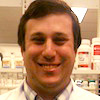 |
Gateway Apothecary
Saint Louis, MO
Multiple sclerosis (MS) is a rare nerve disease that is difficult to diagnose and results in deterioration of the nerve cells. Patients often experience vision problems, as well as numbness and tingling. The cause of MS is currently unknown, but there are many treatments that can be effective in preventing or treating the disease.
One consideration for MS patients is when a patient is having a relapse or a flare up, they are often treated with high doses of corticosteroids, such as methylprednisolone. High doses of steroids are often associated with increased risk of infections, so this risk should be taken into consideration. Patients with HIV are at a higher risk of infections, especially if they have low CD4 counts.
Pharmacists and physicians also have to be cautious with maintenance medication for multiple sclerosis. The standard of care for MS involves the ABC regimen. This regimen contains two interferons, Avonex and Betaseron, and another drug called Copaxone.
Interferon therapy has the possible side effect of worsening depression and other mental health problems. The drug efavirenz, contained in Atripla and Sustiva, is also known to worsen psychiatric disorders such as depression. When deciding on a drug regimen for an HIV patient with MS, providers would more likely choose a regimen containing either an integrase inhibitor (Stribild or Tivicay) or a protease inhibitor such as Prezista, Reyataz, Lexiva or Kaletra.
Treatment for MS with Avonex or Betaseron can often give patients flu-like symptoms such as fever, chills, muscle aches, tiredness and headache. When patients begin taking Atripla or Sustiva, during the first few weeks they might experience similar symptoms such as drowsiness, impaired concentration and insomnia. The additive effects of both of these medications might cause the doctor to prescribe a different HIV medication.
Additional writing by Mason Stewart, student pharmacist at the St. Louis College of Pharmacy.






Comments
Comments